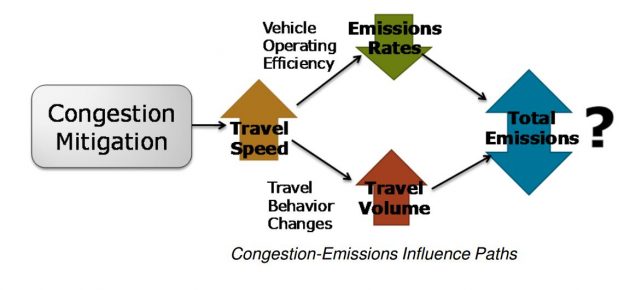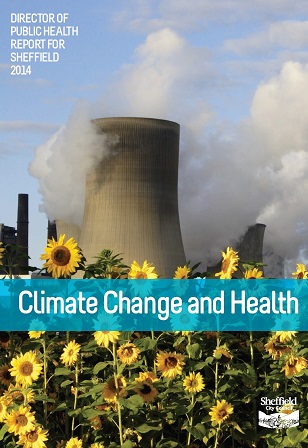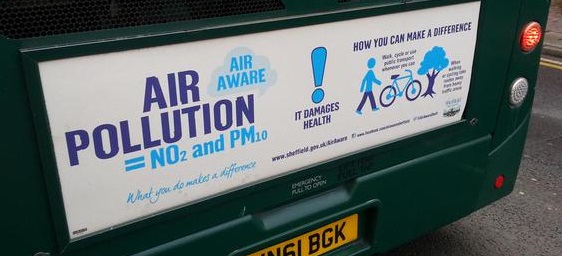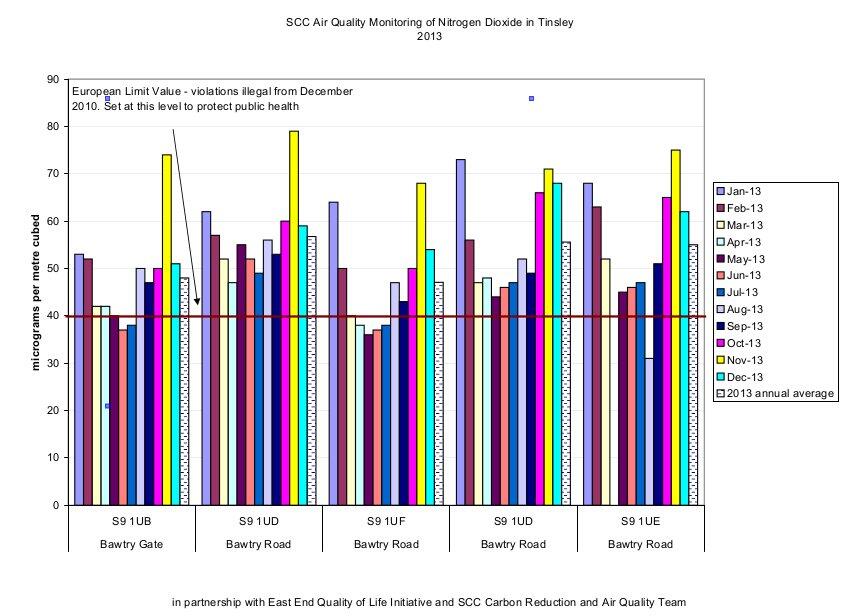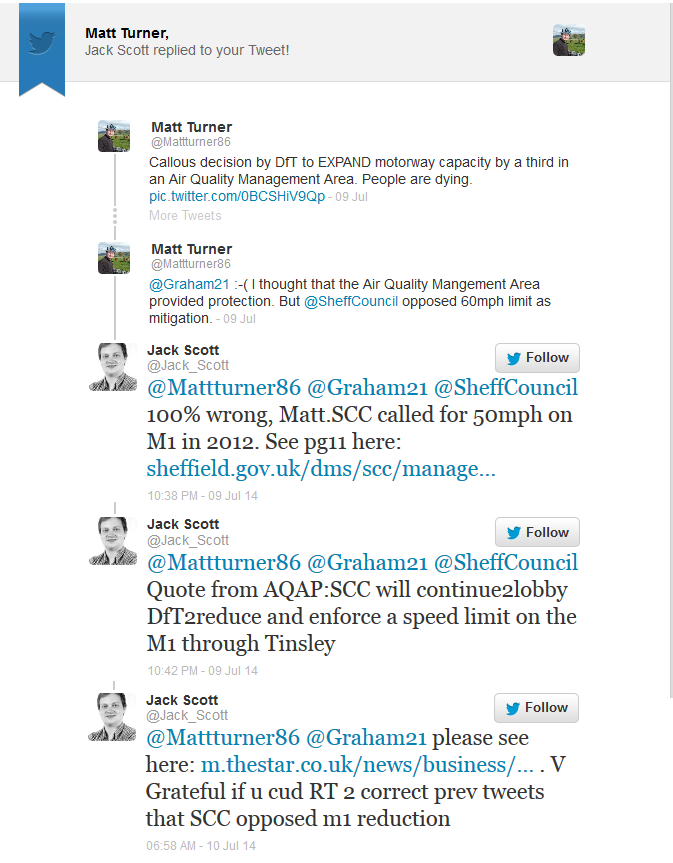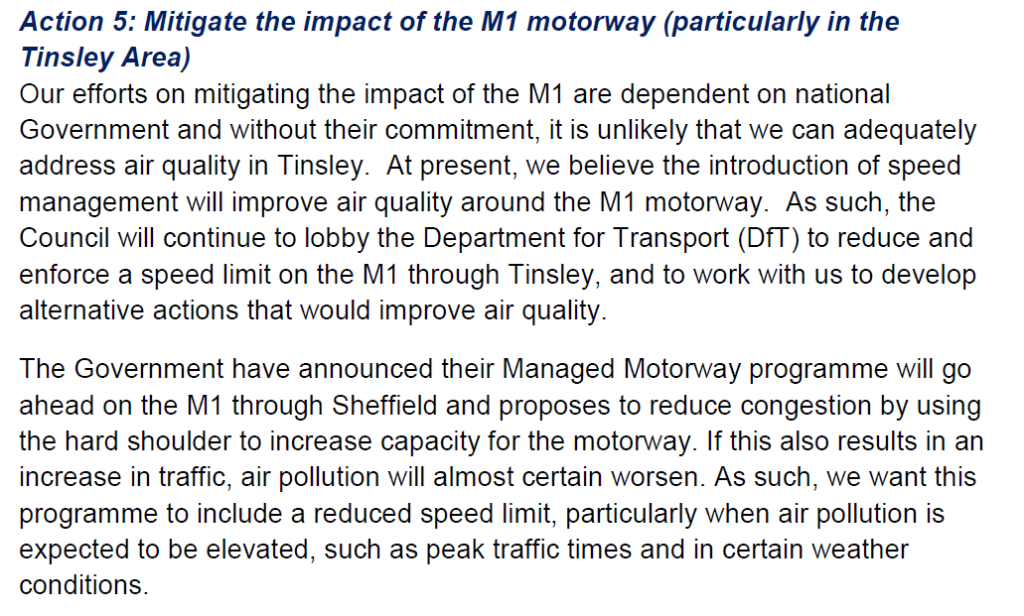
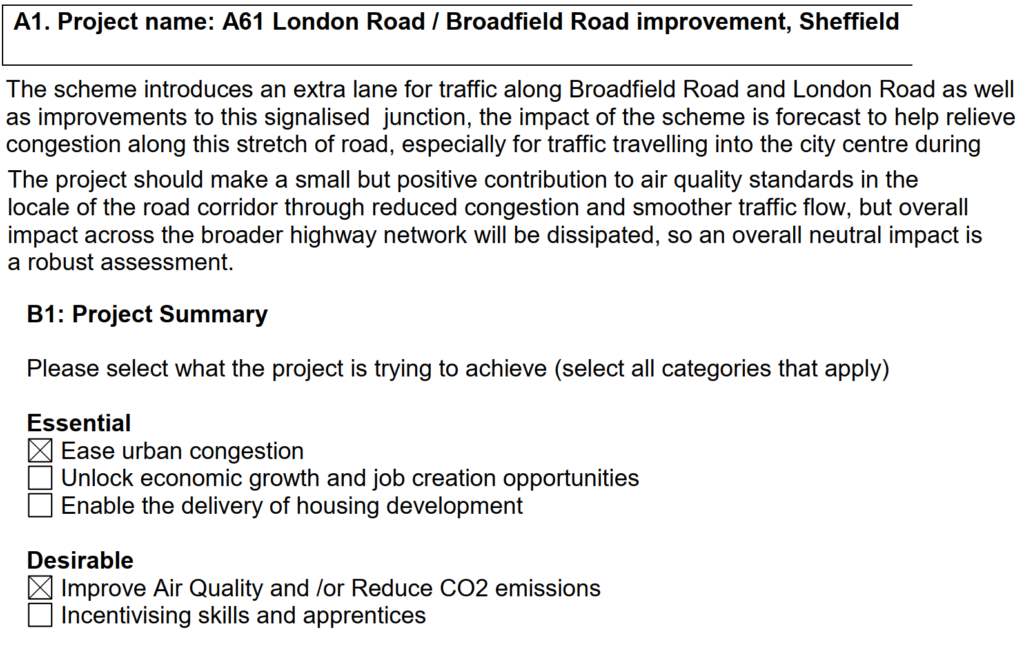
We often hear these claims, but very rarely are they backed up by evidence. Normally they’re just stated, like in the two examples above. I went looking for the evidence and this is what I found.
The basic premise is that vehicles speeding up and slowing down produces more emissions than vehicles travelling at a constant speed (smoother traffic flow), that it will take each vehicle longer to travel through an area, therefore increased emissions. This argument is used to argue against speed bumps, traffic lights, lower speed limits and 20mph zones, and is used in favour of schemes to reduce congestion.
However the counter argument is that decreasing congestion by increasing road and junction capacity (to reduce delay and queuing) will increase traffic levels through a process known as induced travel, or latent demand (the idea that people choose a different route, mode or time to make trips because of congestion).
So, there’s a trade off, it’s likely that early results will show an improvement in air quality, but changes in travel patterns over time will lead to an increase emissions in the medium term. For more information about induced traffic see Wikipedia, Campaign for Better Transport, Wired.
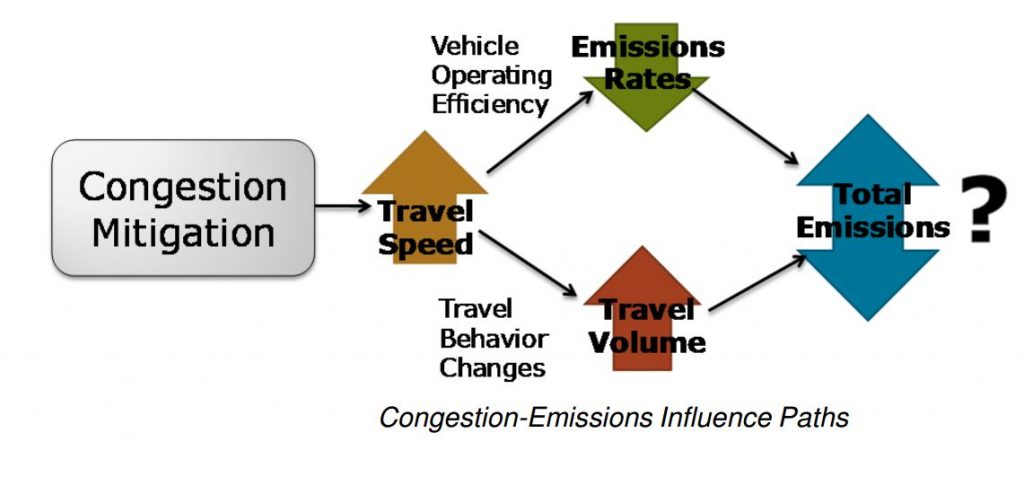
Studies that assume that the number of journeys are fixed, will not include the possibility that pollution will increase due to increased trips.
If you’re looking at a scheme where it’s claimed air quality will be improved, always check if the study assumed that the number of trips is fixed and won’t change.
I don’t know how common this claim is around the UK/World, but in Sheffield I’ve read it a number of times. For example, the 2017 A61 Inner Ring Road scheme will “reduce congestion which will improve air quality”.
There is academic research in this area, some of which involves micro-simulation of vehicle movements. There are 2 studies from 2003 and 2006 with the same author, the first looked at 2 merging roads and traffic signal synchronisation, and the second paper looked at a motorway merge.
In summary, the studies found 10 to 30% reduction in pollutants if traffic levels remained the same, but that pollution would be increased if traffic levels increased by 15 to 30% (depending on the scenario modelled).
The key research is:
R.B. Noland, M.A. Quddus / Transportation Research Part D 11 (2006) 1–14, “Flow improvements and vehicle emissions: Effects of trip generation and emission control technology” [Link]
Fotis Stathopoulos and Robert Noland, Issue. 1842, : Pages. 57-63
(Issue publication date: January 2003) /Transportation Research Record: Journal of the Transportation Research Board / “Induced Travel and Emissions from Traffic Flow Improvement Projects” [Link]
The research in this area was summarised in 2011 in a masters thesis and is well worth a read.
Bigazzi, Alexander York, “Traffic Congestion Mitigation as an Emissions Reduction Strategy” (2011). Dissertations and Theses. Paper 131. [Link]
